The Health Insurance Portability and Accountability Act of 1996 (HIPAA) establishes standards for privacy and data security for those who provide health or health-related services. Because customer relationship management (CRM) software stores patient information, healthcare organizations must comply with these security standards. Based on price and additional features critical to the health industry, we identified the best HIPAA-compliant CRM. Continue reading to find out what they are.
What is HIPAA compliant CRM software?

HIPAA compliance refers to the safeguarding of patient information and communications. Its purpose is to improve the flow of medical information. It secures the exchange of medical records between different healthcare companies and institutions. HIPAA-compliant software safeguards patient information against fraud or theft. It also governs the limitations of medical insurance
In 1996, the United States Congress passed the Health Insurance Portability and Accountability Act. It is divided into five sections.
1) Health insurance in the event of a job loss.
2) Healthcare transaction standards.
3) Medical spending guidelines.
4) Group health plan regulations.
5) Rules governing corporate life insurance policies.
What is HIPAA?
HIPAA, or the Health Insurance Portability and Accountability Act, protect individuals' sensitive healthcare information. Simply put, HIPAA regulations prohibit the disclosure of personal healthcare information without the patient's knowledge or consent. As a result, health services must ensure that all patient records are kept in HIPAA compliant software. [Related article: Top 7 CRM for Insurance]
Why is HIPAA compliance substantial?
HIPAA compliance is something that many healthcare facilities take for granted, but let's take a step back and examine why.
1. It’s a legal requirement
This is without a doubt the most obvious reason why HIPAA compliance CRM is critical. Simply put, failure to comply is illegal. You are not managing your patient data correctly if you are not using HIPAA compliant software.
Failure to comply not only violates the law, but it can also be harmful to the patient whose information was misused. If you violate the act, you will face a hefty fine as well as the requirement to develop a plan of action to bring your policies up to HIPAA standards. Isn't it better to avoid the drama and ensure that your practice uses HIPAA compliant software from the start?
2. Improve the patient experience
When it comes to private healthcare, your patients have numerous options. As a result, medical practices must ensure that they provide excellent service to their patients. If they don't get that level of service from you, chances are they'll find it elsewhere.
And this is where CRM software for healthcare industry comes in handy. Using a modern, user-friendly CRM solution that complies with HIPAA regulations, medical professionals can provide customers with a streamlined and efficient service, thereby improving the patient experience.
When do you need HIPAA-compliant CRM software?
Because the law applies to all patient data with which healthcare providers interact, all CRM software used in healthcare must comply with HIPAA. HIPAA Title II specifies the guidelines that healthcare providers must follow regarding patient data and includes one rule for each transaction, identifiers, enforcement, privacy, and security.
How to Find a HIPAA Compliant CRM

Consider data and employee access safeguards, scalability, automated data backup, and customer references when selecting a HIPAA compliant CRM software. This article is intended for medical practice owners who are looking for customer relationship management (CRM) software that complies with HIPAA data privacy regulations.
Discover How to Choose the Right CRM for Your Business
What to look for in a HIPAA Compliant CRM
These are the most important features to seek in a HIPAA compliant CRM software:
- Employee ease of access. A HIPAA compliant software requiremnets should include safeguards to ensure that employees at different levels have role-appropriate access to patient data. Receptionists, for example, should only have access to basic identifying information, whereas nurses and doctors will need to see patients' vitals as well.
- Data protection. Beyond employee access controls, your CRM should have additional data security features to be HIPAA compliant. It should classify data into security tiers and automatically deny access to employees based on their job role and data level. To make changes traceable, it should also timestamp all data changes with the CRM user's identity.
- Knowledge of cybersecurity is extensive. Although a CRM platform is a program rather than a person, when you speak with someone from the CRM company, they should be able to articulate the software's cybersecurity strengths and weaknesses. Inquire with your sales representative about how the CRM handles endpoint security, patches, HTTPS, and other aspects of cybersecurity. Their responses will demonstrate how important HIPAA compliance CRM is to the company.
- Capability to scale. If your practice expands, it's critical to select a HIPAA-compliant CRM that can serve healthcare organizations of all sizes. When reviewing your CRM's success stories, look for evidence of work with larger healthcare organizations.
- Backup of data. One of the most serious consequences of a cybersecurity breach is data loss. A HIPAA compliant CRM will protect you from this problem by regularly backing up your data, possibly to multiple locations.
- Security warnings. Some HIPAA compliant database software will notify you of data breaches almost immediately, allowing you to take appropriate action. All businesses, particularly healthcare organizations dealing with sensitive and potentially life-saving information, must respond quickly to a data breach.
Read More About Benefits of CRM System
5 Best HIPAA Compliant CRMs Compared
-
PatientPop

PatientPop isn't just a CRM it’s one of the best HIPAA compliant CRM software. They are a medical practice technology and support platform. Their platform promises to assist you in growing your practice, providing a consistent patient experience, and managing your online presence. If you're looking for a one-stop-shop, PatientPop could be the answer. Because of their emphasis on expansion, all of their tools are geared toward new patient acquisition, customer experience, and automation
What We Like
- PatientPop is a one-stop growth solution that handles everything from website development to booking and scheduling.
- They are HIPAA compliant right away.
- PatientPop has an active blog as well as a money of support resources.
What's Missing
- PatientPop costs more than a standalone CRM solution.
- If you just need a CRM, they may not be for you.
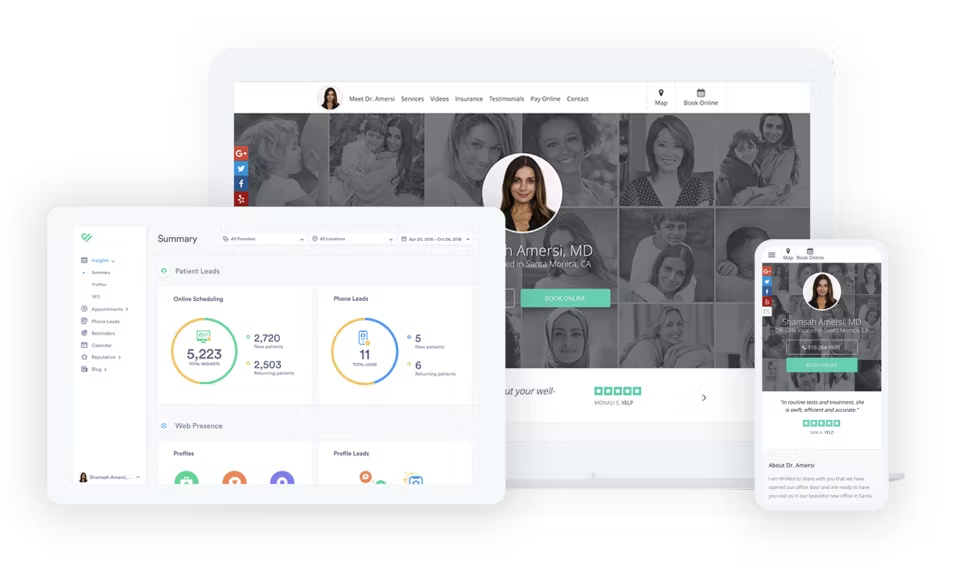
Pricing
- Must contact for pricing
Key Features
- Activity Dashboard
- Appointment Management
- Appointment Scheduling
- Brand Tracking
- Call Reminders
- Campaign Management
- Confirmation/Reminders
- Contact Management
- Email Reminders
- EMR/EHR
- Engagement Tracking
- For Medical Purposes
- HIPAA Compliant
- Marketing Automation
- Messaging
-
Salesforce Health Cloud

Salesforce Health Cloud is a native Salesforce database system that is HIPAA-compliant and designed for healthcare and life sciences businesses. Users have access to all commonly found CRM features thanks to the development of one of the world's most popular CRM providers. Workflow automation, business intelligence, marketing campaign deployment, system customization, and lead management are all included. Salesforce is both advanced and unique in terms of healthcare features. Consider an insurance data modeling feature that allows you to see patient insurance information such as claims or group data on a visual layout.
What We Like
- Encourages collaborative care
- Workflows are streamlined.
- Triggers ensure that patients receive the necessary follow-ups.
What's Missing
- There is no free option.
- Notability difficult to operate and navigate the platform
- Even the most basic plans are costly.
Pricing
- Enterprise: $300 per user, per month
- Unlimited: $450 per user, per month
- Free trial: 30 days
Key Features
- 21 CFR Part 11 Compliance
- Access Controls/Permissions
- Accounting Integration
- Activity Dashboard
- Activity Tracking
- Ad hoc Reporting
- Admissions Management
- Alerts/Notifications
- Appointment Management
- Appointment Scheduling
- Audit Management
- Authorization Tracking
- Bed Management
- Billing & Invoicing
-
Enquire CRM

Enquire CRM was created specifically for senior living and post-acute care. Enquire Solutions has been in business since 2011 as HIPAA compliant CRM for small business with a specific focus. CRM, marketing automation, and contact center solutions are their main lines of business.
If you work with clients in senior living or post-acute care, you should definitely consider Enquire CRM. Their focus allows them to offer some distinctive features tailored to senior living, skilled nursing, home health, home care, and hospice.
What We Like
- Because of the company's narrow focus, features are geared toward senior living and post-acute care.
- Everything from contact management to marketing automation is possible with feature-rich software.
- Enquire CRM comes standard with HIPAA compliance.
What's Missing
- Enquire CRM is only available to certain organizations due to their narrow focus.
Pricing
- Must contact for pricing
Key Features
- Admissions Management
- Billing & Invoicing
- Care Plan Management
- Charting
- Claims Management
- Clinical Care
- Electronic Signature
- EMR/EHR
- Event / Activities Planning
- For Home Care Providers
- For Nursing Homes
- Geriatric Care
- Incident Management
- Lead Management
- MDS Review
-
NexHealth
NexHealth is a HIPAA-compliant CRM for online scheduling, telehealth appointments, waitlists, and appointment reminders. It integrates with the majority of major EHR vendors and includes reporting tools and patient payment portals. The NexHealth tiers differ in their features; some even support marketing campaigns and automated follow-up appointment outreach.
What We Like
- Excellent communication features with patients
- Simple access to online payment methods
- Excellent usability ratings for navigating the interface and using the operating features.
What's Missing
- There is no free plan or transparent pricing.
- There is no mobile app, and integration capabilities are limited.
Pricing
- Acquire: Must contact vendor for pricing
- Retain: Must contact vendor for pricing
- Delight: Must contact vendor for pricing
- Free trial: 30 days
Key Features
- Alerts/Notifications
- Appointment Management
- Appointment Scheduling
- Audience Targeting
- Billing & Invoicing
- Campaign Management
- Confirmation/Reminders
- Drag & Drop
- HIPAA Compliant
- Marketing Automation
- Medical Billing
- Messaging
- Mobile Access
- Multi-Location
- No-Show Tracking
-
Caspio

Caspio is a CRM solution for larger healthcare organizations that is HIPAA-compliant. It enables simple CRM customization without the need for extensive coding or modification. It's an excellent option if you want to expand your practice's services beyond traditional medical appointments. Caspio, for example, makes it possible to expand into healthcare industry consulting or other non-patient-facing fields. This is due to the ease with which it can be customized, allowing the creation of numerous interconnected online databases.
What We Like
- Unlimited users on a free plan
- To create modules and visual tools, use point-and-click and drag-and-drop functionality.
- Email and SMS communication capabilities are built in.
What's Missing
- Expensive initial paid plan
- A Corporate plan is required for turnkey HIPAA compliance.
- The Build plan is required for automation features.
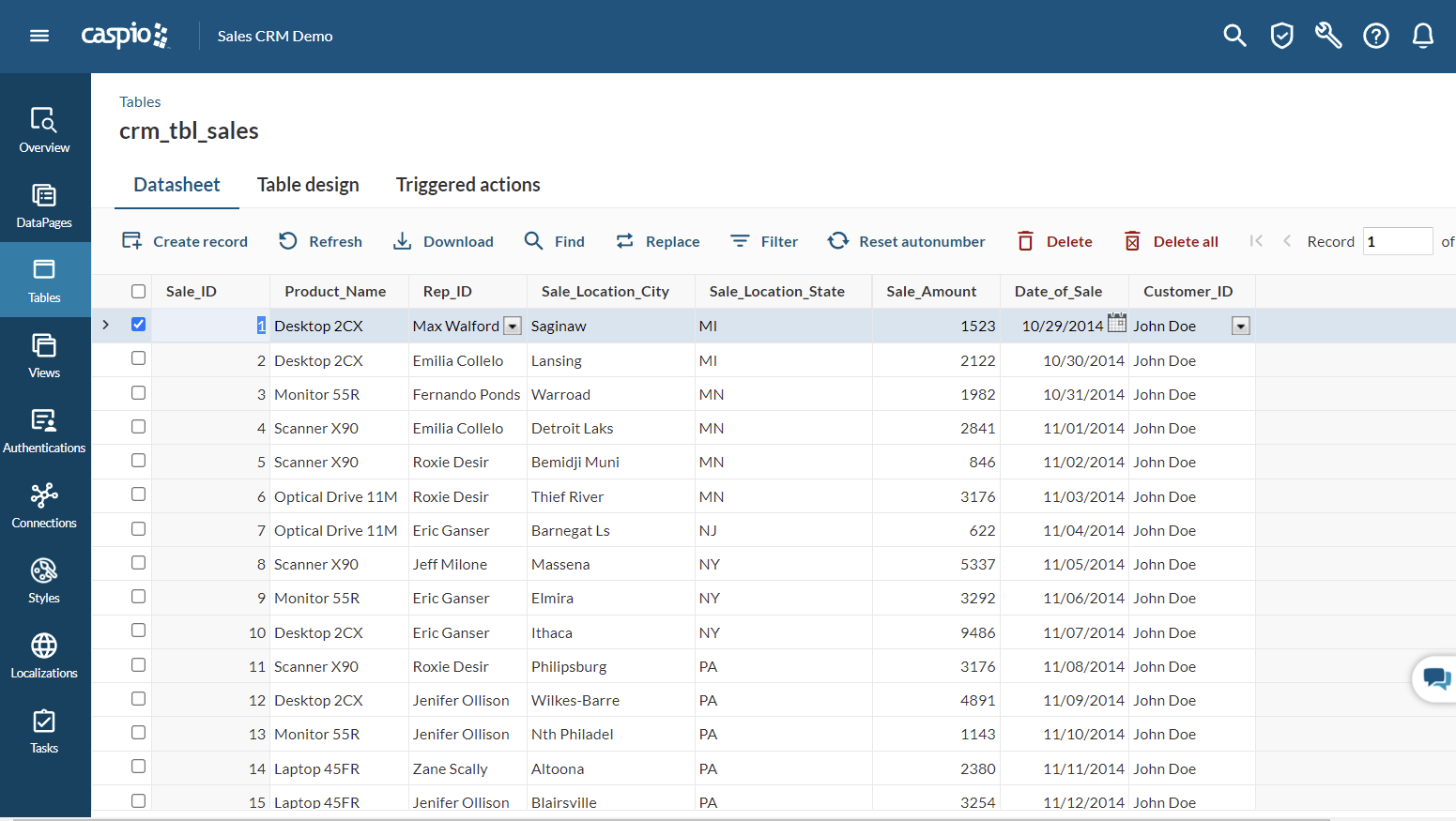 Pricing
Pricing
- Free: Unlimited users
- Explore: $128 per month
- Build: $255 per month
- Grow: $510 per month
- Corporate: Contact for pricing
- Free trial: 14 days
Key Features
- Access Controls/Permissions
- Accounting Integration
- Activity Dashboard
- Activity Tracking
- Admissions Management
- Alerts/Notifications
- Appointment Management
- Archiving & Retention
- Asset Tracking
- Audit Trail
- Availability Management
- Backorder Management
- Backup and Recovery
- Bed Management
- Billing & Invoicing
Choose the Right CRM for Your Practice
The first step in selecting the right CRM for your organization is determining which features will assist you in meeting your organization's goals. This process involves a thorough evaluation of your practice's needs and objectives. Are you looking to expand your practice and attract new patients? Or perhaps you want to enhance the customer experience and improve patient satisfaction. By identifying your specific goals, you can narrow down your options and find a CRM that aligns with your vision.
However, it's important to remember that a CRM is just one piece of the technological puzzle. While it plays a crucial role in managing patient information and improving communication, there are other technologies that can further enhance your practice's efficiency and effectiveness. For instance, integrating your CRM with electronic health record (EHR) systems can streamline the process of accessing and updating patient records. This integration not only saves time but also ensures accuracy and continuity of care.
Additionally, utilizing patient engagement tools, such as online appointment scheduling and telehealth platforms, can greatly improve the patient experience. These technologies offer convenience and flexibility, allowing patients to easily book appointments and receive care from the comfort of their own homes. By embracing these innovative solutions, you can meet the evolving needs of your patients and stay ahead in a competitive healthcare landscape.
In conclusion, selecting the right CRM is a crucial decision for any healthcare organization. By understanding your organization's goals and leveraging the power of technology, you can optimize your operations, improve patient outcomes, and ultimately achieve success in today's healthcare industry.

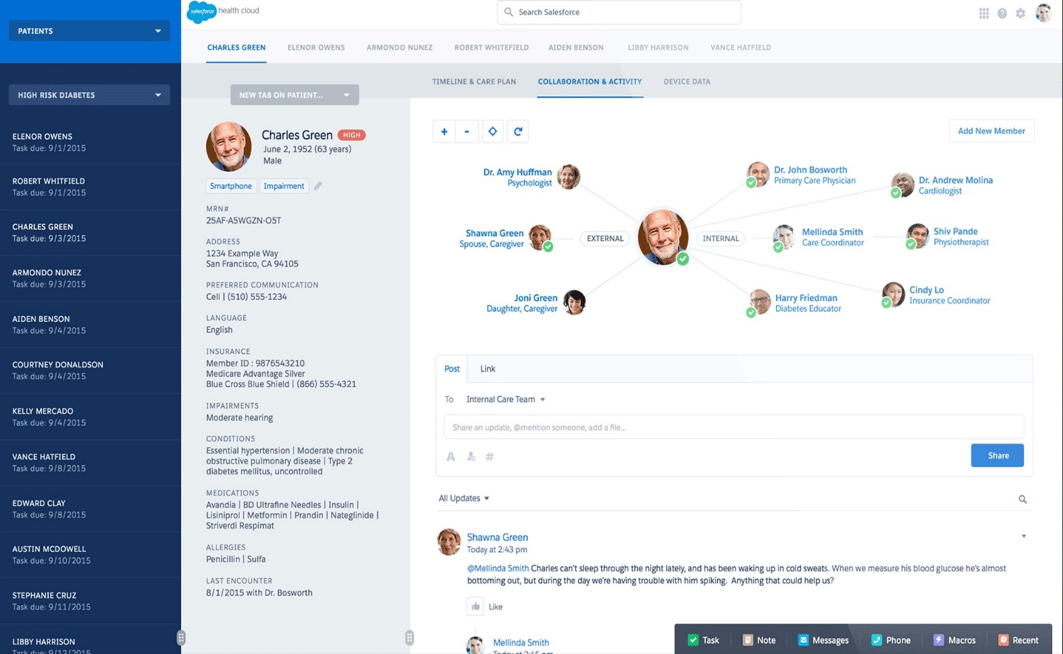
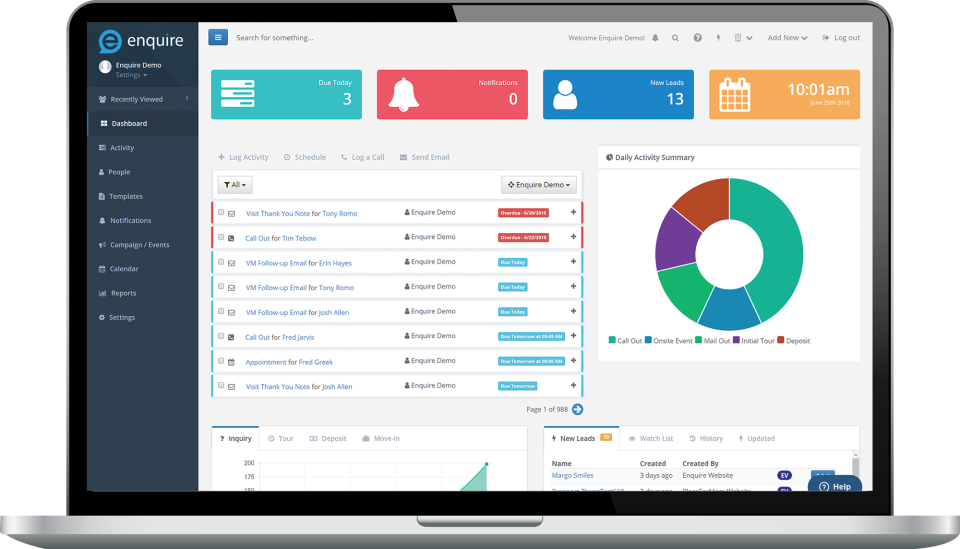
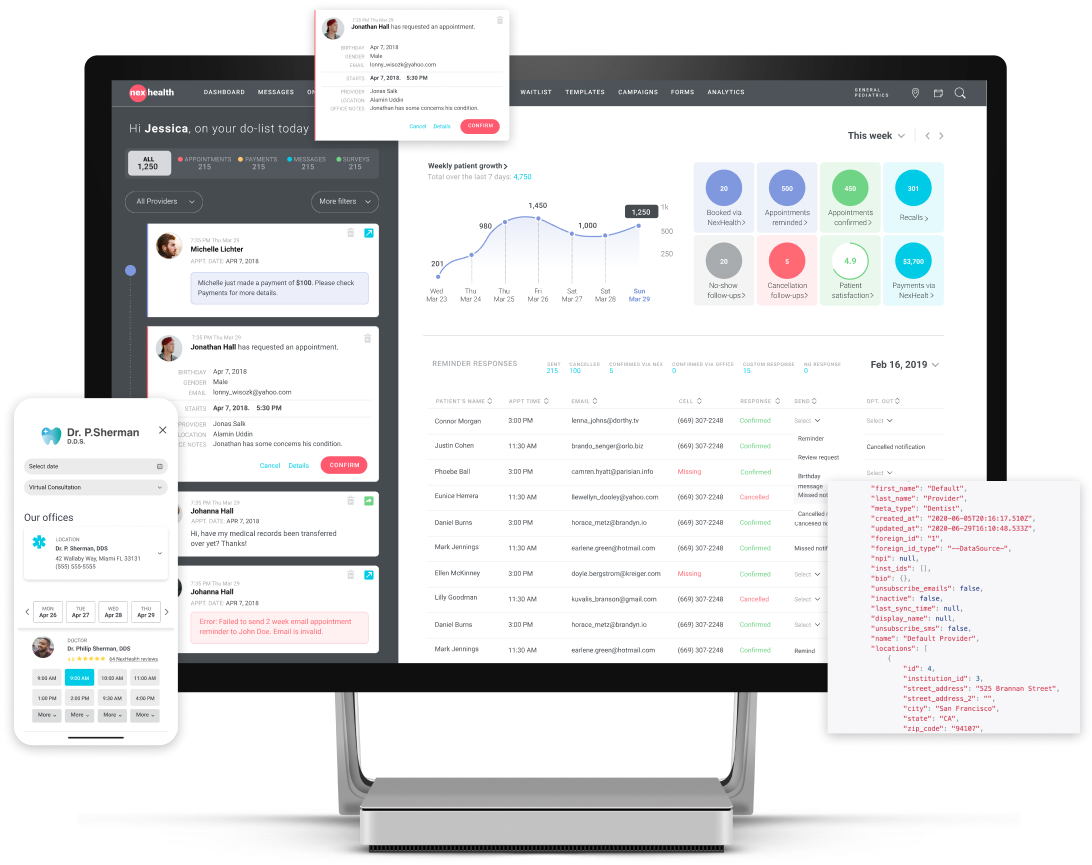
.png?width=140&height=140&name=Noah%20(1000%20x%201000%20px).png)



